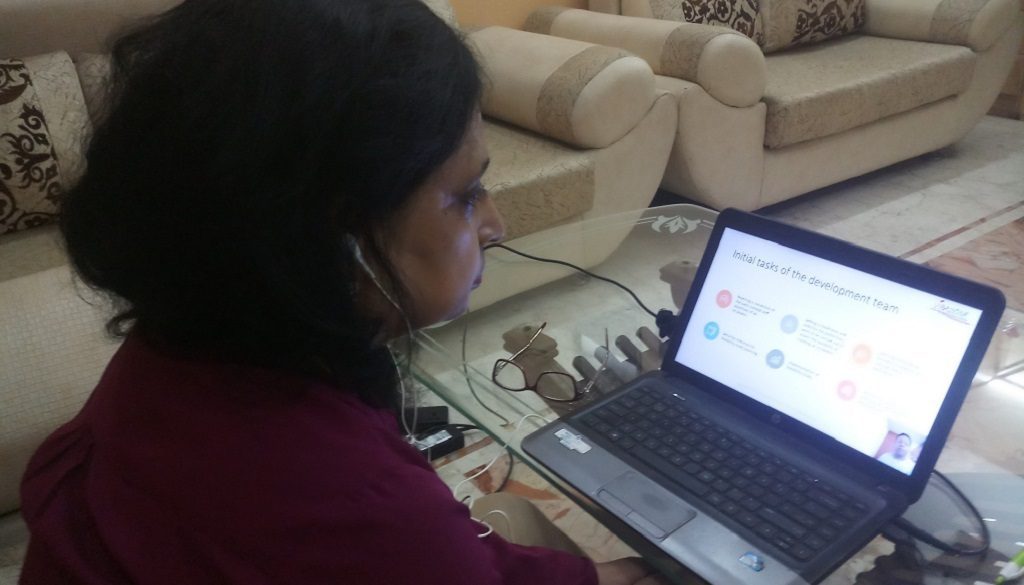You Tube Session on ‘Role and Importance of Pre-Incubators, Incubators and Accelerators in HEIs’
A live YouTube session on ‘Role and Importance of Pre-Incubators, Incubators and Accelerators in HEIs’ was organized by MHRD Innovation Cell which was conducted by Mr. Muthu Singaram, CEO, IIT Madras, HTIC incubator, Chennai recently. Faculty members and Students of Manav Rachna University attended the session. The session was highly informative and insightful.
Mr. Muthu Singaram stressed upon the importance of Higher Educational Institution (HEI) to establish incubator and explained the difference between pre-incubation, incubation and acceleration. He discussed incubator services, staff and funding of incubator, importance of mentoring and networking for the incubator. The entire lifecycle of pre-incubation to incubation and finally to startup was explained very well. The lifecycle activities include ideation, feasibility study, market need analysis/stakeholder analysis of ideas, fund exploration, finding investors, converting an idea to proof of concept, building the prototype and refining it with feedback from potential customers, deciding on a sustainable business model, identify customer segment, product offerings and move to product development. At the same time vision, mission, strategies of the incubator, identifying and planning the infrastructure of the incubator needs to be carried out by a right team with good team spirit and appropriate skill/expertise.
Incubators are to be established in HEIs to harness the innovation and entrepreneurial potential of students at an early stage. Then incubator contract, governance and its management need to be in place. Speaker emphasized on the need of mentoring, to keep updated with emerging trends, continuous training and learning, networking (through the conduct of hackathons, workshops, seminars, expert talks), to be at the top of technological advancement, market competition. He emphasized on the need of a good design of incubator space with ambiance, modern architecture. Incubator facility should have space for creative and collaborative idea generation, conducting design thinking workshops, confidential meetings etc which can be easily upgraded to a start-up. Pre-incubation is for putting together good teams to build the ecosystem. Incubation is to reduce the chances of failure of early-stage start-up and provide necessary support and access to resources that result in the financial and economic viability of the start-up. Acceleration programs run for a concentrated period of time, usually between three and six months and the curriculum typically involves mentorship, networking, and customer building, and often some venture capital investment. Mentors should learn the business from operations, financial, marketing and should know about relations and investors involved in the business. Mentors should have wide experience and they play a major role in assessing if the technopreneur should be able to take the business to the next stage. Mentors help the startup to go to market faster, increase the survival rate of entrepreneurs, accelerate their learning and build their confidence. Apart from physical infrastructure, Incubators should provide legal support for IP and regulatory, market research, business services, mentoring for both technology and business, HR, Financial management, industrial connects, access to funding, scale-up, networking, So there should be appropriate staffing with required skills in the incubator.



